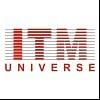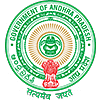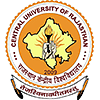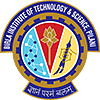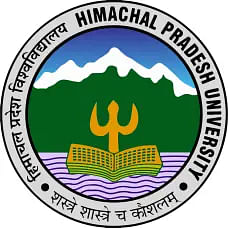
Table of Contents
- Engineering Geology
- Mineral Exploration
- Earthquake Disaster, Hazard, and Mitigation
- Petroleum Exploration
- Chemical Engineering
- Structural Engineering
- Computer Science and Engineering
- Electrical Engineering
- Electronics & Communication Engineering
- Environmental Science & Engineering
- Fuel Engineering
- Mineral Engineering
- Industrial Engineering & Management
- Mechanical Engineering
- Geomatics
- Mining Engineering
- Tunnelling & Underground Space Technology
- Mining Machinery Engineering
- Petroleum Engineering
The syllabus for ISM EE 2022 is declared by IIT (ISM) Dhanbad. Candidates should know all the topics included in the ISM EE 2022 Syllabus before appearing for the exam. The detailed and subject-wise syllabus is given below.
Engineering Geology
-
Geomorphology and Remote Sensing, Stratigraphy, Paleontology, Mineralogy & Geochemistry, Sedimentary Petrology, Igneous Petrology, Metamorphic Petrology, Structural Geology, Geotectonics, Economic Geology, Exploration Geology, Engineering Geology, Hydrogeology and Environmental Geology
Mineral Exploration
-
Geomorphology and Remote Sensing, Stratigraphy, Paleontology, Mineralogy & Geochemistry, Sedimentary Petrology, Igneous Petrology, Metamorphic Petrology, Structural Geology, Geotectonics, Economic Geology, Exploration Geology, Engineering Geology, Hydrogeology and Environmental Geology
Earthquake Disaster, Hazard, and Mitigation
- Mechanics of Solids, The Solid Earth, Near Surface Investigation, Seismology, Resistivity Method, Signal Analysis, Geology, Environmental Science
Petroleum Exploration
-
Part 1: Geophysics – Solid Earth Geophysics, Seismology, Signal Analysis, Exploration Seismology, Resistivity and IP Methods, Electromagnetic Method, Remote Sensing and Image Processing, Well Logging.
-
Part 2: Geology – Geomorphology and Remote Sensing, Stratigraphy, Paleontology, Mineralogy and Geochemistry, Sedimentary Petrology, Igneous Petrology, Metamorphic Petrology, Structural Geology, Geotectonics, Economic Geology, Exploration Geology, Engineering Geology, Hydrogeology and Environmental Geology
Chemical Engineering
- Fluid Mechanics, Chemical Process Calculation, Heat transfer, Mechanical Operations, Chemical Engineering Thermodynamics, Mass Transfer, Chemical Reaction Engineering, Instrumentation and Process Control, General Chemical Technology, Fuel & Energy
Structural Engineering
- Mechanics, Structural Analysis, Concrete Structures, Steel Structures, Soil Mechanics, Foundation Engineering, Fluid Mechanics and Hydraulics, Water Supply and Waste Water Treatment, Highway Engineering
Computer Science and Engineering
- Discrete Mathematics, Probability & Statistics, Data Structures, Algorithm Design and Analysis, Digital Circuits and Computer Organization, Theory of Computation, Operating Systems, Computer Networks, Database Management Systems
Electrical Engineering
- Electric Circuits & Fields, Signals & Systems, Electrical Machines, Power Systems, Control Systems, Power Electronics & Drives, Electrical and Electronic Measurements, Analog and Digital Electronics
Electronics & Communication Engineering
- Semiconductor Devices, Analog Circuits, Digital Electronics, Instrumentation and Measurements, Network Theory, Signals and Systems, Control Systems, Communication Systems, Electromagnetic Theory
Environmental Science & Engineering
- General Ecology, Air Pollution, Primary and Secondary Air Pollutants, Noise Pollution, Water Pollution, Environmental Legislation, Environmental Impact Assessment
Fuel Engineering
- Momentum, Heat and Mass Transfer, Theory of machines, General principles of metallurgy, Definition and important terminology, Mining methods
Mineral Engineering
- Scope and importance of Mineral Engineering, Different types of crushers and grinding mills, their features and usages, Principles and practices of different types of concentration processes used in mineral beneficiation such as gravity concentration, magnetic separation, flotation, etc., Fundamentals of sintering, pelletization, dewatering & drying, General principles of extractive metallurgy.
Industrial Engineering & Management
- Principles and Practices of Management, Human Resource Management, Quantitative Techniques, Industrial Engineering, Project Management, Financial Management
Mechanical Engineering
- Engineering Mechanics, Mechanics of Solids, Theory of Machines, Machine Design, Thermal Engineering, Fluid Mechanics and Fluid Machines, Production Technology
Geomatics
- Chain surveying, Leveling, Traversing, tachometer and Plane Table Surveying. Construction and use of Theodolites, levels, Tachometer and Plane Table. Contours and Contouring. Area and volume calculations
Mining Engineering
- Rock Breaking, Rock Support and Reinforcement, Rock Mechanics, Surface Mining Methods, Underground Coal Mining Methods, Underground Metal Mining Methods, Mine Planning
Tunnelling & Underground Space Technology
- Natural caves, archaeological caves and their construction, tunnels for road, rail and hydropower, need for underground space, engineering utilities such as hydropower tunnels and caverns, underground storage for LPG and crude oil, geo-engineering investigations, physicomechanical properties of rocks, subsurface investigations, planning and design aspects of underground excavations, tunnelling methods, instrumentation, various supports used for tunnels, caverns and their design approaches. Engineering geological aspects, Mining and Civil engineering aspects are given importance.
Mining Machinery Engineering
- Shear forces, Machines, links and mechanisms, Fluid statics, kinematics and dynamics, Engineering thermodynamics, Power Hydraulics
Petroleum Engineering
- Fundamentals of Petroleum Engineering, Oil and Gas Well Drilling Technology, Reservoir Engineering, Petroleum Production Operations, Offshore Drilling and Production Practices, Well Test Analysis and EOR, Health Safety and Environment in the Petroleum Industry, Latest trends in Petroleum Engineering

